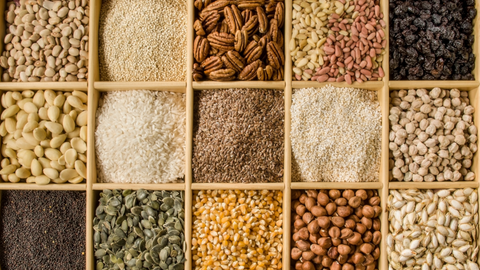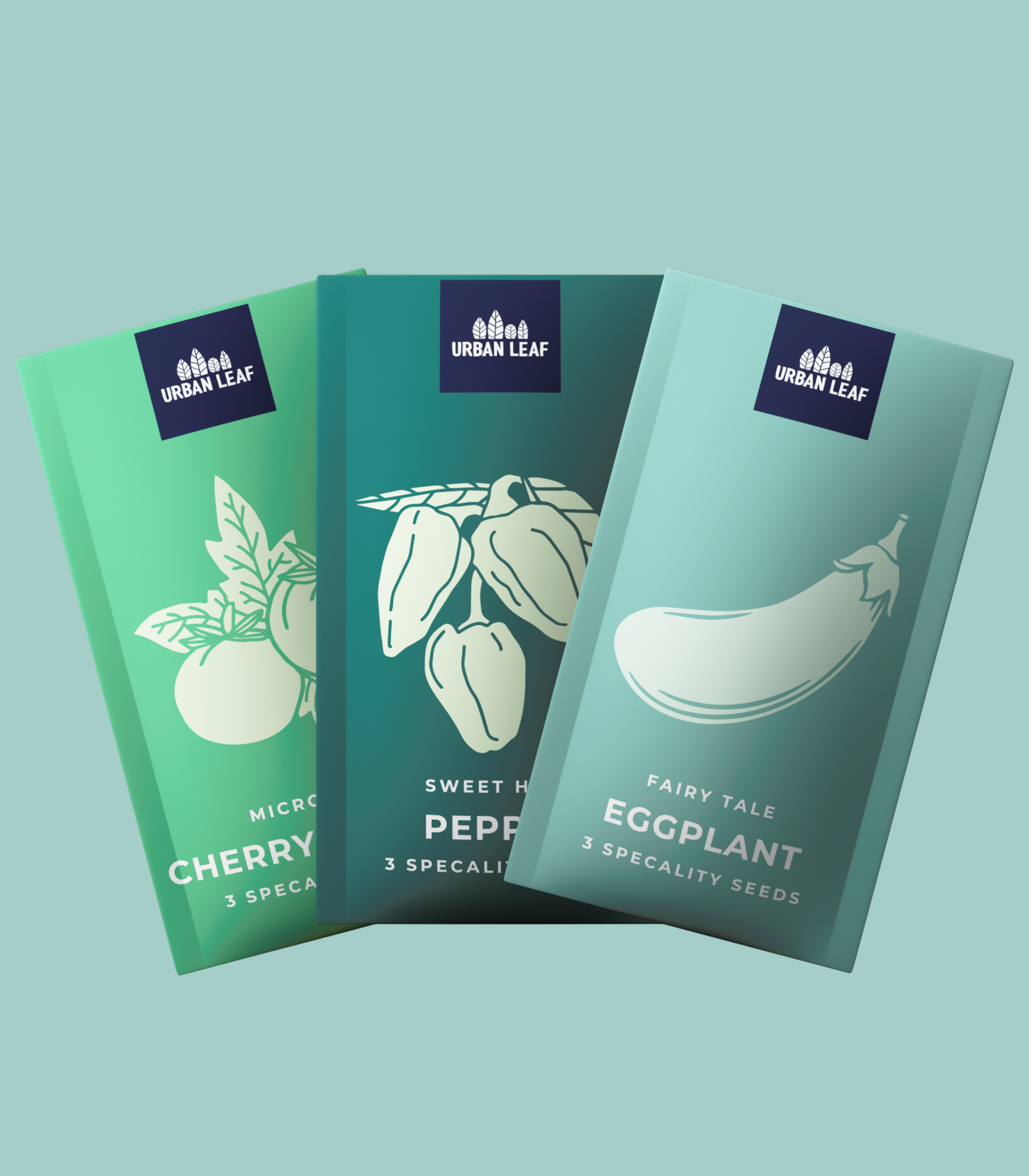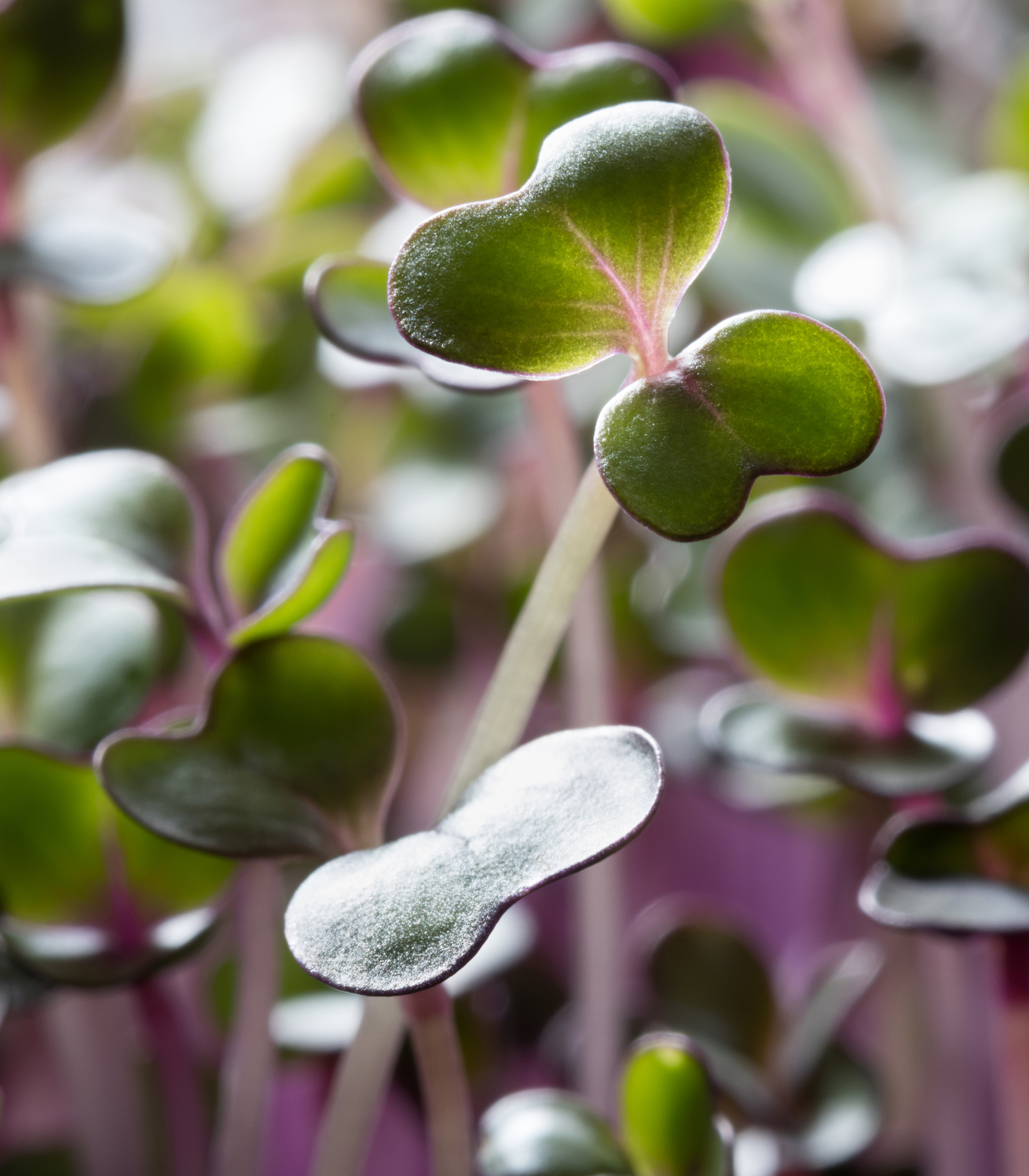Looking at a seed catalog might leave your head spinning with all the different descriptors – Non-GMO, Primed, Heirloom, F2, Organic... What do they all mean? Is it marketing jargon or are these really important seed terms?
In this blog, we will decode these different seed terms for you to help you decide what’s important for your seed shopping.
What Does Having “Organic” Seeds Mean?
The USDA has a pretty tight definition of what it means to be Organic, broadly that they’re grown without synthetic fertilizers or pesticides. That means with organic seeds you don't have to worry about pesticide residue on your seeds, which can potentially persist in the final harvest.
| Pros | Cons |
|
|
Are Organic Seeds Non-GMO?
Yes, organic seeds are non-GMO seeds! One of the many rules that need to be followed for a seed to be certified organic is that it’s not genetically modified.
What Do Non-GMO Seeds Mean?
GMO means Genetically Modified Organism (GE, which is often a more appropriate term, means Genetically Engineered), which means genes from a different animal or plant are transferred into another. So “non-GMO” seeds just means that genetic engineering wasn’t part of the plant breeding process.
Genetic engineering is mostly focused on commercial agriculture crops such as cotton, corn, and soybeans. Seed companies aren’t lying when they advertise their herbs and veggie seeds as “non-GMO seeds” – the truth is that it isn’t something you need to be too worried about, as they’re really only sold to commercial farmers, not the home gardener.
It should not come as a surprise therefore that all Urban Leaf seeds are non-GMO. You can see our complete range here.
| Pros | Cons |
|
Are Non-GMO Seeds Organic?
It depends – while all organic seeds are non-GMO, not all non-GMO seeds qualify as organic. Organic mostly has to do with how the plants are raised, while non-GMO has to do with the genetic makeup of the seed.
What Are “Heirloom” Seeds?
Heirloom varieties have been hand-selected by gardeners and farmers over time. Just like a family heirloom, the genes and characteristics of a cultivated variety are passed down from generation to generation and many can be traced back 100, 200 or even 300 years. The big benefit of using seeds of heirloom plants is that they are "open-pollinated" meaning you can collect seeds from your plant at the end of the season and when you plant them, they will grow a plant with the same characteristics as the “parent”.
| Pros | Cons |
|
|
Choosing Between Heirloom Vs. Open-Pollinated Seeds?
While all heirlooms are open-pollinated, not all open-pollinated plants are heirlooms! An heirloom variety or cultivar is one that has been selected and in cultivation and open-pollinated for about 50 years or more (some prefer the 100-year mark to qualify), which means that its genes are very stable when you self-pollinate the plants!
Are Heirloom Seeds Organic?
Not necessarily. While heirloom sounds very pastoral, it only describes the genetic makeup, and it’s very possible that your heirloom seeds were raised with synthetic fertilizers or pesticides, so if Heirloom and organic are important to you, you’ll need to make sure it’s got both designations.
What Does Having “Hybrid” Seeds Mean?
Hybrid seeds happen in nature all the time – but when humans intentionally make a "cross" between plants, or find a seedling in their collection that is a result of hybridization, we call the resulting hybrid a 'cultivar'. A hybrid is the result of cross-pollination between different species of plants in the same genus, or crosses between different varieties of the same species. Some plants classified in two different Genera (Genus) can also have the potential to hybridize. For example, if a bee travels from one species of tomato to another species of tomato, transferring pollen from one to the other, the seeds that develop from that cross will result in a "hybrid" plant that has traits from both the parents. Often times the hybrid plant may exhibit more desirable traits such as improved vigor or bigger fruits.
Over time, gardeners have found certain plants to produce really great offspring that have the best characteristics of both parents – think a really compact basil plant that is disease resistant with super flavorful leaves.
| Pros | Cons |
|
|

What’s The Difference Between F1, F2, And F3 Seeds?
All the “F” terms sound pretty science-y and artificial, but the reality is much simpler and more natural than that. The F stands for the world "filial", which means of or due from a son or daughter, or subsequent generation. The number just corresponds to the generation of the seed – in other words, F1=First generation of seedlings from two different parent plants. F1 hybrids can have improved vigor and show specific improvements desired from both parents. F2= second generation of seedlings from crossing two F1 individuals, F3= third generation from crossing two F2 individuals.
By continuing to make crosses, and increasing the filial generations, you won't be making the same F1 hybrid you did the first time and you may lose some of those desired traits. However, if you keep selfing or crossing each generation with itself, the less the seed genetics will drift and the more luck you would have with seed saving and getting a similar plant in the next generation. Eventually, the F-number would get high enough that the seed would be considered “heirloom” – where the characteristics are totally stable from generation to generation.
Can Hybrid Seeds Be Certifiably Organic?
Yes! If it’s grown following organic standards a hybrid seed can be certified as organic.
What Are “Primed” Seeds?
Some seeds naturally have low germination rates – like rosemary which is around 30% and can take weeks to sprout. Seeds like this benefit from being “primed” – where they are taken through some of the pre-sprouting steps before they get to you. This increases the germination rate and reduces the time they take to sprout – and while it’s not needed for all plants, it can be helpful for poor sprouters.
What Are “Pelleted” Seeds?
Some very small and difficult seeds can be found in a pelleted form where they are encased in a thin layer of clay. This is a big help when planting because the pellet is much easier to see, handle, and plant. It also speeds up the germination because once watered, it keeps the seed consistently moist until it sprouts. You can find this used on some of our vegetable seeds.
Choosing Between Generic Vs. Premium Seeds
Seeds are the “smartest” part of any garden – their DNA dictates the plants’ size, flavor, looks, and light requirements. And on a per plant basis, the difference between generic and premium seeds is typically a few cents per seed, so when we’re growing only a few plants we always opt for premium genetics. This means different things for different plants – but high-quality hybrids, organic, primed, and pelleted seeds feature heavily in our herb and vegetable seeds.









good information on seeds
Interesting information.
Thanks for clarifying this was really helpful looking forward more facts on hybrid and organic and in organic s
This is a well organized presentation of extremely useful information for anyone wanting function on a high level of proficeincy.
Thank You,
Al